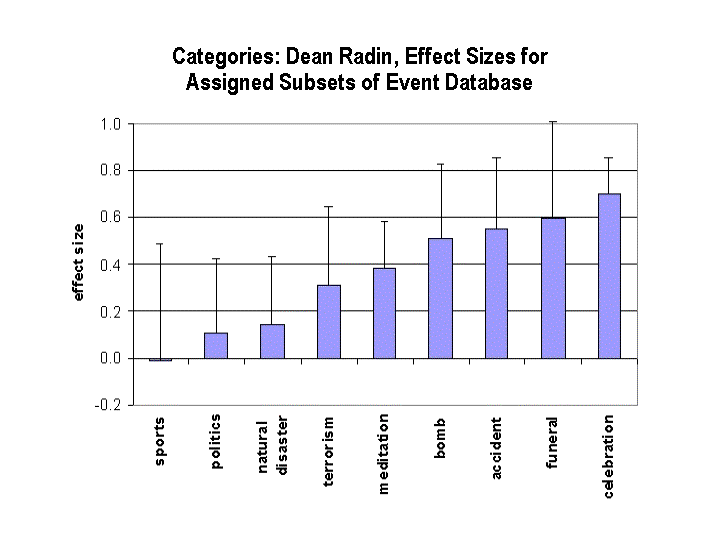What Kinds of Events Have Effects? |
|
As we gather more experience, it is possible to make more effective predictions, in the sense of trying to learn more about what matters. The earliest predictions were selected on the basis of intuitions that the events might matter to the EGG network. Later, we could make some predictions that we had reason to expect would show deviations, confirming previous analyses. But we also wished to learn more about what the range of effects would be depending on the type of event, and we gradually broadened the survey. With over 130 formal events, we now can take a preliminary look at what matters, but collecting them into categories. Decisions about what categories to use and how to place certain events are subjective, of course, but we have to accept that and try to be wise about the decisons. The goal is to learn what is in the database, and not to seek confirmation of pet notions. The figures below show two separate attempts to do this, one by Dean Radin and one by Roger Nelson. A cleaner version of these, together with figures showing effect size as a function of distance are available as a PDF file. Dean and I both looked at the question what kinds of events have the greatest effects, using categories that we devised separately. I had looked at Dean's results a couple of months before I did my categorization, so our results cannot be thought of as independent. But I made an effort to use a fresh judgement. There is a lot of overlap of our results, even though the assignment of events to categories is a subjective decision. Even more subjective is the interpretation of the results. But our results agree in placing global celebrations near the top of list, with shocking events like terror attacks and bombing not far behind. The most surprising outcome for me is that natural disasters have only a small effect, little different from political contests which tend to show little or no correlation with patterns in the egg data.
|

